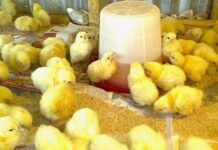The World Food Program (WFP) is supporting agro-processors and other agriculture value chain players to take advantage of opportunities in the agro sector to be globally competitive.
The organisation has reiterated its commitment to Ghana to help develop a resilient economy that impacts zero hunger.
The WFP has started implementing transformative programmes that support Ghana to engage competitively with the rest of the world through trade and investment.
Two industrial agro-processors have benefited from the World Food Programme initiative.
“Our aim is to assist and provide technical guidance to agro-processors, smallholder farmers, and stakeholders in the agricultural value chain to take advantage of the opportunities inherent in the agro sector and global market for improved livelihood,” the Representative and Country Director, WFP, Barbara Tulu Clemens, stated.
One of the agro-processors, Premium Foods, qualified as a producer and supplier of SuperCereal, a specialized nutritious food to WFP’s global operations.
The WFP ordered 1,200 metric tonnes of SuperCereal from Premium Foods to be delivered to Burkina Faso.
“Canada enabled WFP to invest USD 2.5 million in Premium foods and a CAPEX loan of USD 25 million. The investment has really been useful to the company.
“The orders from WFP will really improve the lives of small-scale farmers who sell their produce to the company through aggregators,” Founder and Managing Director of Premium Foods, Tom Gambrah noted.
Sara Nicholls, Minister-Counsellor and Senior Director (Development Programme) of the Canadian High Commission was also present to witness the export of the Super cereal.
From 2016 to 2021, the WFP implemented an integrated nutrition-food security initiative dubbed ‘Enhanced Nutrition and Value Chains’ in Ghana (ENVAC), which was funded by Canada.
It aimed at encouraging the consumption of specialised nutritious foods to help improve pregnant and nursing women, adolescent girls, and children’s nutrition.
It also provided financial and technical support to agro-processors and improved farming practices amongst smallholder farmers.








